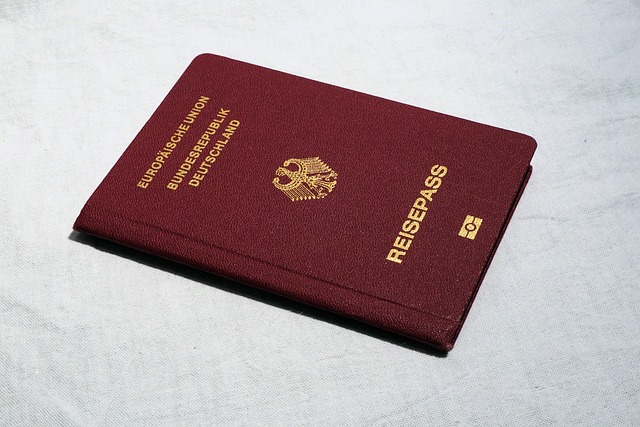French in Society: How to Accelerate Naturalization and Feel Comfortable
Learning French opens doors to deeper integration within French society, accelerating naturalization processes and fostering meaningful connections with local communities. This comprehensive guide explores how mastering French transforms your social experience and practical pathways to citizenship, while examining effective learning strategies and resources available to international learners seeking cultural integration.

What paths open up for people who know the language?
French language proficiency creates numerous opportunities for personal and professional advancement within French society. Native-level speakers often find themselves eligible for government positions, educational roles, and healthcare careers that require direct communication with French citizens. Legal pathways become more accessible, including simplified naturalization procedures that recognize linguistic competency as evidence of cultural integration.
Beyond career advancement, French speakers gain access to local social networks, community organizations, and cultural events that remain largely inaccessible to non-speakers. This linguistic bridge enables participation in local politics, volunteer opportunities, and neighborhood associations that strengthen community ties and demonstrate civic engagement to naturalization authorities.
How does French influence contact with the country’s native inhabitants?
Language proficiency fundamentally transforms interactions with native French speakers, moving conversations beyond basic transactional exchanges toward genuine cultural dialogue. French citizens typically respond more warmly to foreigners who demonstrate linguistic effort, often leading to invitations to social gatherings, family events, and local celebrations that provide authentic cultural immersion.
Professional relationships also deepen when communication barriers dissolve. Colleagues become mentors, business partners become friends, and casual acquaintances evolve into lasting social connections. This social integration proves invaluable during naturalization interviews, where authorities assess genuine community involvement and cultural understanding rather than mere residency duration.
What are the most effective language learning methods?
Immersive learning approaches consistently produce superior results compared to traditional classroom instruction alone. Combining structured lessons with real-world application through conversation exchanges, local volunteering, and community participation accelerates comprehension and builds confidence in natural settings.
Digital resources complement traditional methods effectively, offering flexibility for busy professionals and families. Interactive applications, online tutoring sessions, and virtual conversation groups provide consistent practice opportunities while accommodating individual schedules and learning preferences.
Why you should spend time studying every day
Daily language practice maintains momentum and prevents skill deterioration that occurs with sporadic study schedules. Even fifteen-minute daily sessions prove more effective than lengthy weekly cramming sessions, as consistent exposure strengthens neural pathways and improves retention rates significantly.
Regular practice also builds speaking confidence gradually, reducing anxiety during important conversations with government officials, employers, or community members. This confidence proves crucial during naturalization interviews, where nervous applicants often struggle despite adequate language skills.
How to choose the right online French course?
Selecting appropriate online French courses requires evaluating individual learning goals, current proficiency levels, and specific integration objectives. Courses designed for naturalization candidates often emphasize practical vocabulary, cultural context, and formal language structures required for legal proceedings and official documentation.
Interactive features distinguish high-quality programs from basic vocabulary apps. Live conversation sessions, personalized feedback, and cultural immersion modules provide comprehensive learning experiences that prepare students for real-world interactions beyond basic communication needs.
| Course Provider | Monthly Cost | Key Features | Target Level |
|---|---|---|---|
| Babbel | $13-20 | Live classes, cultural insights | Beginner to Intermediate |
| Rosetta Stone | $12-36 | Immersive method, speech recognition | All levels |
| FluentU | $15-30 | Real-world videos, interactive subtitles | Intermediate to Advanced |
| italki | $10-50 | One-on-one tutoring, native speakers | All levels |
| Alliance Française | $200-400 | Official certification, cultural programs | All levels |
Prices, rates, or cost estimates mentioned in this article are based on the latest available information but may change over time. Independent research is advised before making financial decisions.
What are the costs of online French language courses?
Online French language courses range from free basic applications to premium programs costing several hundred dollars annually. Budget-conscious learners can access quality instruction through subscription services starting around ten dollars monthly, while comprehensive programs with live instruction and certification typically cost between thirty to fifty dollars monthly.
Professional tutoring represents the highest investment category, with qualified native speakers charging fifteen to sixty dollars per hour depending on credentials and specialization. However, this personalized approach often produces faster results, potentially reducing overall learning timelines and associated costs.
French language mastery serves as a powerful catalyst for social integration and naturalization success. By choosing appropriate learning methods, maintaining consistent practice schedules, and engaging actively with French communities, international residents can accelerate their journey toward citizenship while building meaningful relationships that enrich their cultural experience. The investment in language learning pays dividends through expanded opportunities, deeper social connections, and smoother navigation of administrative processes essential for successful integration into French society.




